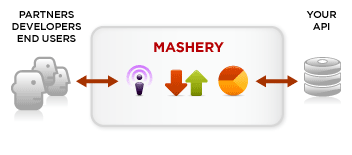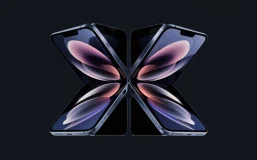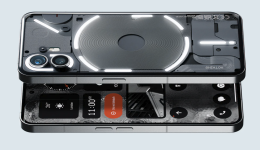Below is an Interview between Jussi Hurmola, the CEO of JollaMobile and Stefan of Intomobile.
Stefan: The company was officially founded in October, right?
Jussi: Yes, that’s correct.
Stefan: OK, because I was on the Finnish tax site and it said you registered it in April.
Jussi: The company called “Jolla” was created in October. We reused an old company that we happened to have, but the old company doesn’t have any links to Jolla. If you look at the registries people have interesting hypothesis why it’s like that.
Stefan: I don’t have any, I was just curious. Anyway, when did you know that you wanted to leave Nokia?
Jussi: It was a long process. So … of course there was the February 11th news. We were watching what was happening, Nokia was setting up new things, but it was clear when we looked around that all these bright people, technologies, along with an almost ready ecosystem and products, there was something there that we wanted to continue. There had to be a business opportunity. Gradually we created a strategy, then at the end of last year we decided it was something we could do, so we started building.
Stefan: Just so I can confirm, you have 50 employees right now?
Jussi: Yes, we have close to 50, and we’re hiring about 5 people a week. We’re aggressively hiring and we’re trying to grow the company to 100 people by the end of the year.
Stefan: And half the employees you have right now, they come from Nokia?
Jussi: Yes, about half of the people come from Nokia, and the others … almost all of them have backgrounds in Maemo, Mobiln, or MeeGo. They come from the community as well as other companies.
Stefan: In an article that The Wall Street Journal published, they said that you said you needed to raise 10 million Euros in order to sell between 50,000 and 100,000phones this year.
Jussi: Yes, the story goes like this: We have our first phase of financing arranged. There are different phases, let me list them: Doing the device itself, then there’s marketing, there’s manufacturing, and the ecosystem setup, etc. Phase one is doing the device, the actual product, and that requires about 10 million Euros.
Stefan: Are you commenting about how much you already have? Do you already have that 10 million Euros?
Jussi: Yes. Of course the financing is setup that we grow it step by step, but yes we have a financing plan and agreement for the first phases.
Stefan: The phone you’re talking about, it’s going to come out this year?
Jussi: Yes, we’re going to announce the phone later this year.
Stefan: Let me rephrase, will I be able to walk into a store and actually purchase your phone this Christmas?
Jussi: Our principle is that we are careful, so we don’t want to promise anything that we can not do. This is why at the moment we just said we will reveal a phone later this year.
Stefan: Yesterday TechCrunch published an article that said you want to come out with two phones. Care to comment?
Jussi: I think that was based on the interview. I was asked if we’re catering to developers or the larger public, and I said we’re definitely going for the larger public, but we also want to enable the developers and the community and enthusiasts by giving them a “developer mode” option. We want to cater to both audiences. I think this became their two devices.
Stefan: So … one by the end of this year, hopefully, and another in 2013?
Jussi: We have different things on our drawing board at the moment. We need to see how this first one does before we commit to future products.
Stefan: I know you’re not going to say anything about the spec sheet, that’s OK, but what sort of price points are you trying to hit?
Jussi: That I can not say. This information will come when we KonaLink2 unveil the device.
Stefan: The Wall Street Journal also said you signed some contracts with some companies, specifically screen manufacturers and chipset vendors. Can you comment?
Jussi: In order to make a smartphone these days you need chipset vendor support, ODM (original design manufacturing) support, and some other companies too. We’re currently in the negotiations phase, and we’re really close to being able to communicate what partners we actually use. This is our present situation.
Stefan: So you’ll soon be able to say who you signed contracts with?
Jussi: Yes. Soon. Hopefully.
Stefan: Regarding the software, a lot of people have been asking will this new operating system of yours use the same Swipe UI that was on the Nokia N9?
Jussi: Swipe is a Nokia user interface. We are going to do a new user interface. Selecting MeeGo enables us to do something new. If we went with Android or something else then we would just be using the user interface it already comes with. So we will make a new user interface; of course we will inherit the familiar and powerful elements that MeeGo has, as we know it now, but we are not going to use Nokia’s user interface.
Stefan: Would you say then that this new UI is inspired by Swipe or is it something completely new?
Jussi: It’s inspired by many things. There are great examples out there in iOS, in Android, and in the N9. I personally like the N9 the most. I’m influenced by it, and I think we’re influenced by it in our designs.
Stefan: You mentioned Android. Have you heard about companies like Xiaomi, who make their own custom Android ROM called MIUI, or how about the Amazon Kindle Fire? Why choose to go and create a brand new operating system as opposed to taking Android and skinning the top?
Jussi: Xiaomi, I know them very well. We have been going to China every month. There’s Meizu, Xiamoi, there are many people who put custom user interfaces on top of Android. It’s still a followers game. Xiamoi’s game is also based on price competiton. We want to lead in technology and lead in UI, that’s our business. We don’t want to copy them.
Stefan: You said you’ve been going to China every month. Has that been for the past few months?
Jussi: Since last year.
Stefan: Do you guys have a patent portfolio?
Jussi: We are creating our IPR (intellectual property rights) in the UI area and also a couple big technologies. Of course we are a small company, so it takes some time to grow it. We definitely need it (referring to IPR).
Stefan: Can you quantify how many patents you have currently?
Jussi: Not at the moment.
Stefan: There’s been a lot of confusion regarding patents from Nokia. Have they given you any? Are they licensing you any? What’s the situation there?
Jussi: Nokia actually answered these questions yesterday because TechCrunch was speculating that Nokia “gifted” us some IPR. I can say that Nokia doesn’t “gift” IPR.
Stefan: Can you talk more about the “Nokia Bridge” program? What is it and how has that helped you guys?
Jussi: As far as I understand, specific to Finland, it was a project setup because Nokia has been letting go so many people. They set it up to help people cope with the situation. We have been open with Nokia, so Jolla wasn’t a surprise for them, and their response to us hasn’t been a surprise either. We were able to cooperate with them in setting up our company. At least that’s what Nokia Bridge means to me.
Stefan: Do you think that the average consumer out on the street cares about open source software on their phone?
Jussi: That’s a good question. One week ago I would have answered no, but judging by the response we’ve been getting, even from the normal media, such as Iltalehti in Finland, they covered MeeGo and open operating systems. So I’m slowly changing my opinion that maybe open source might have some impact.
Stefan: I’m specifically talking about the larger audience. There will always be people who are into open source. I mean the really large audience, as in several hundreds of millions of people.
Jussi: I guess they don’t care much. And if you’re talking about open source operating systems, Android is based on Linux, so it’s a fact these days that devices are made with open source components.
Stefan: Which countries are you targeting for your first product?
Jussi: That I can only say when we reveal the device.
Stefan: Here’s a big question I have. Why did you choose to reveal Jolla right now instead of waiting until you had a phone or an operating system to show?
Jussi: Last week there was a lot of news concerning MeeGo and PR 1.3 for the Nokia N9. People started speculating if this was the end of the story. Is this the end of the line? Will there be anymore hope? If you look at our first tweets, what we basically wanted to say is that MeeGo is not dead. We got such a tremendous response from Twitter and the online community and even traditional media that we didn’t have a choice but to just go with it.
Stefan: Is your goal to become a handset vendor or is your goal to be purchased by a handset vendor that currently exists?
Jussi: We want to grow our own business. These days there are companies which are setup to be sold, but we want to create our own business. We want to create our own company.
Stefan: Now for the applications problem. When you launch your phone it’s going to have almost zero apps. It’s not going to be competitive with Android and iOS. How do you plan on dealing with that?
Jussi: I believe that we have an answer for this, and I understand that you can not seriously sell a smartphone if you don’t have a sufficient application offering, but I can’t tell you what our plan is until we announce our product.
Stefan: Are you familiar with the Apple story around Steve Jobs, how he got kicked out, started his own company called NeXT, and then Apple bought NeXT and used their software to bring Apple back to life? If the Windows Phone plan goes to complete shit, and Nokia don’t sell any, would you be open to getting acquired by your former employer?
Jussi: Creating an ecosystem and a platform is about cooperating. It’s not about going alone. Basically what we’re doing right now is creating partnerships and building efforts around MeeGo and Jolla. So I’m open to all cooperation. There are different forms of cooperation of course, but the key is to grow the ecosystem. That means we’re inviting different people in different forms.
Stefan: You said you’re hiring about 5 people a week, so what sort of people are you looking for?
Jussi: At the moment we are hiring designers, graphical UI designers, system developers, and application developers.
Stefan: So you’re not looking for any non-engineering folks?
Jussi: Probably soon, but at the moment we have sufficient non-engineering people. Getting our product done is our main focus.
Stefan: What would you define as success for Jolla?
Jussi: For us it’s to be in this game. In order for us to be in this game we need to be big enough. It’s very difficult to be small in this market and in this industry. We need to have significant enough mind share, technology share, and ecosystem share in the smartphonemarket. Then we’ll have succeeded. Which means we can continue.
Stefan: Can you quantify any of that?
Jussi: We need to have enough percentage points.
Stefan: More than Windows Phone, hopefully. (laughs)
Stefan: Fun question: Average age of your employees? At Nokia it’s quite old.
Jussi: Average age, I don’t know. We have quite a variety of ages. Our oldest guy was at Nokia for 25 years, in engineering. Our youngest designers come straight from school. We try to keep a balance so we cover both ends: stability and experience; innovation and spirit.
Stefan: In the TechCrunch interview you said “we’re confident we can do it again.” By that you mean you want to build a company as large and as well known as Nokia?
Jussi: I was referring to our device. The team that we have, we have built ecosystems, we have built platforms, we have built devices. Building a company, you can never repeat that. It’s always a different story.
Stefan: You also told them that you have “big partners”. Care to comment?
Jussi: Not at the moment.
Stefan: After Nokia said no to MeeGo, Samsung picked up where they left off and started Tizen. Would you be open to working together with that team?
Jussi: We have been following Tizen, but I don’t really understand their situation. There’s a Tizen association, and a Tizen distribution, and the code is not exactly open, and Bada is somehow mixed in. If I had a better understanding of what was happening I’d be able to comment, but right now I’m in a fog about Tizen. I know they’re all about HTML5, and we are following with great interest what they’re doing with HTML5, but we also know that HTML5 is very fragmented. There’s no specifications, and Google and others are working on that technology, so let’s see.
Stefan: How do you intend to manage the distribution of your products?
Jussi: There are three channels. Depending on the area, there are operator channels, like in Europe and the US for example. Then there are retailers, they are big in Asia. And finally there’s the new emerging open channel where you can basically sell your devices online to anyone in the world. These three, we’re looking at them. But of course in the beginning we’re going to need strong partnerships with the operator channel and with the retail channel to get our presence out.
Stefan: In the WSJ interview you said: “With all respect to Apple’s operating system and Android, the market is ready for something new. As I see it, there are user segments that have been left unserved.” Which user segments are you talking about?
Jussi: I think it will become quite clear when we launch our product.
Stefan: Last question: What do you think about the recently announced Firefox OS?
Jussi: Let’s see what happens. I haven’t paid much attention to that.
Source IntoMobile

















